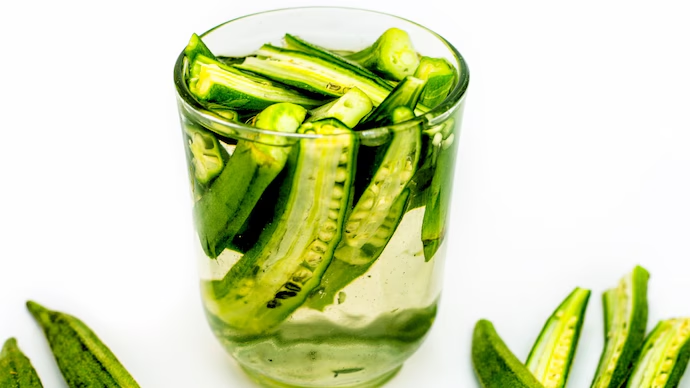10 daily habits that cause bad mouth odour even after brushing

10 Everyday Habits That Cause Persistent Bad Breath Even After Brushing. Bad breath, or halitosis, can be an embarrassing issue that persists despite regular brushing and mouthwash. While good oral hygiene is essential, certain everyday habits may still lead to bad mouth odor. Here are ten common daily habits that could be the underlying causes of bad breath even when you think you’re doing everything right.
1. Skipping Breakfast
Skipping breakfast not only impacts your energy levels but also contributes to bad breath. When you don’t eat in the morning, saliva production slows down, leading to a dry mouth, which creates an environment where bacteria can thrive. A simple breakfast can stimulate saliva production, which helps to wash away odor-causing bacteria.
10 daily habits
2. Drinking Coffee and Alcohol
Coffee and alcohol may be enjoyable, but both can contribute to bad breath. Coffee has a strong scent that lingers, while both coffee and alcohol can lead to dry mouth by reducing saliva production. Saliva is essential for washing away bacteria, so when you drink these beverages, the lack of saliva can make bad breath worse. Rinse your mouth with water after consuming coffee or alcohol to help neutralize the odor.
3. High-Sugar Diet
Sugar can feed the bacteria in your mouth, which produce foul-smelling byproducts. Foods and beverages with high sugar content, such as candy, sodas, and baked goods, can increase these odor-causing bacteria. Reducing sugar intake and choosing healthy snacks can help control bad breath.
4. Frequent Snacking
While healthy snacks are important, frequent snacking throughout the day can increase bad breath. Constant snacking means that food particles remain in your mouth longer, providing a food source for bacteria. Additionally, people often skip brushing or rinsing their mouths after snacks. Opting for fewer snacks or rinsing your mouth with water after eating can reduce this problem.
5. Eating Certain Foods
Garlic, onions, and other pungent foods contain sulfur compounds that are absorbed into the bloodstream and released in your breath. Even if you brush after eating these foods, the compounds can still be emitted from your lungs hours later. Choosing foods that are less odor-inducing or chewing fresh herbs like parsley can help reduce the smell.
6. Not Flossing Regularly
While brushing is crucial, flossing is equally important for preventing bad breath. Food particles and plaque can accumulate between teeth, leading to a buildup of bacteria that brushing alone can’t remove. Flossing daily helps to remove these particles and reduce the bacteria responsible for foul breath.
7. Dehydration
Staying hydrated is vital for overall health and essential for good breath. Dehydration leads to a dry mouth, which reduces saliva production. Saliva acts as a natural mouth cleanser, washing away food particles and bacteria. Drinking enough water throughout the day can keep your mouth moist and reduce bad breath.
8. Mouth Breathing
Mouth breathing, often caused by habits or certain sleeping positions, dries out the mouth, especially when sleeping. This dryness limits saliva flow, creating an environment where odor-causing bacteria can flourish. If you tend to breathe through your mouth, try to address any potential underlying issues, such as nasal congestion, and consider using a humidifier at night.
9. Consuming Dairy and High-Protein Foods
Dairy products and high-protein foods are notorious for causing bad breath. Dairy contains amino acids that can fuel odor-causing bacteria in the mouth, while high-protein foods can lead to a buildup of smelly byproducts when they are broken down. If you notice these foods contributing to bad breath, consider incorporating more vegetables and fresh greens into your diet.
10. Using Tobacco Products
Tobacco is a common cause of persistent bad breath. It leaves a strong, lingering odor in the mouth, dries out the tissues, and increases the buildup of plaque on teeth. This combination leads to an ideal environment for bacteria to thrive. Quitting smoking or chewing tobacco is one of the most effective ways to improve your breath and overall health.
Final Thoughts
Addressing bad breath is often about looking at your daily habits and making small changes. By identifying and adjusting these common habits, you can reduce bad breath and maintain fresher breath throughout the day. If bad breath persists, consider consulting a dentist or doctor, as it may indicate an underlying health issue.
Source: Timesofindia
In other news – Nhlanhla Mafu Embarks on Solo Career Amid Speculation of Rift with Theo Kgosinkwe
Nhlanhla Mafu Embarks on Solo Journey Following Alleged Rift with Theo Kgosinkwe.
South African music fans have been buzzing with the news that Nhlanhla Mafu, the beloved songstress from the iconic duo Mafikizolo, is stepping out on her own. Read more















